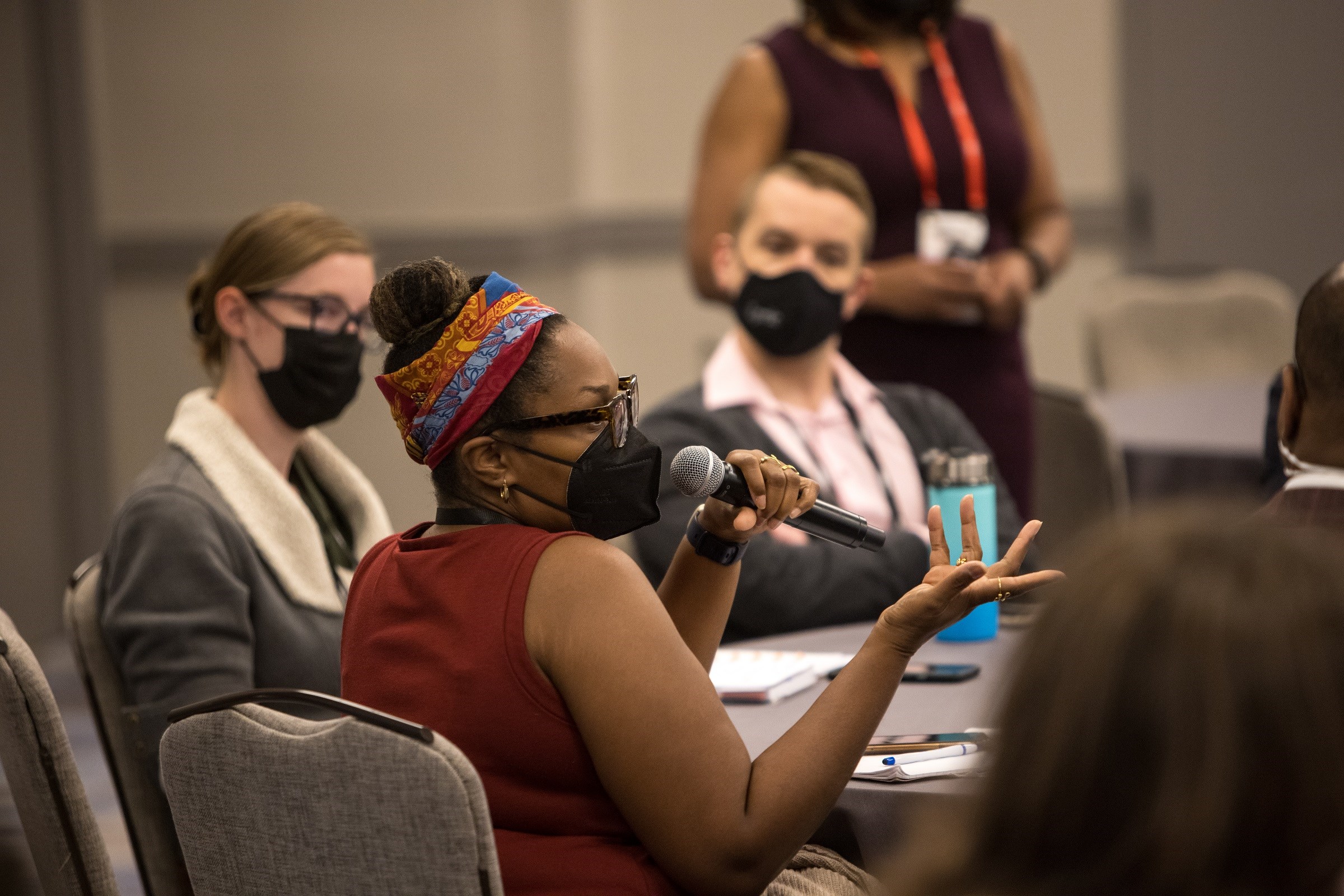Companies of the Future

What will a successful opera look like in 10 years? What could be different? What should be different? One of the principal aims of Opera Conference 2022 was to gather members’ thoughts about some of the critical questions facing the industry today to guide opera’s ongoing evolution. Through plenary sessions, small-group workshops, and spur-of-the-moment feedback, OPERA America was able to gather insight on how companies can continue to move forward effectively.
Adjusting companies’ definitions of success and setting realistic expectations emerged as a key issue. For Andrew Morgan, general director of Hawai’i Opera Theatre, success and overcoming fear are intrinsically linked. “It’s not just our companies,” he said. “As a whole country, fear is stopping us from change. Opera companies are dancing on a knife’s edge with budgets. If you only have three productions, one of them can’t be a failure. But we have no artistic growth if we don’t have failure.”
Many conference attendees argued that making opera more accessible to everyone is a critical goal, proposing a variety of solutions ranging from shortening repertoire to programming more comedies and works in non-European languages and even singalong stagings. “There’s a lack of variety,” said OPERA America President/CEO Marc A. Scorca in his post-conference summary. “Opera is in foreign languages. It’s not connected to local stories. The stories may be sexist or racist. People don’t see themselves on stage.”
Diversity is another essential component of the opera companies of the future, with attendees agreeing that companies need to go further in bringing diversity to productions and leadership. Jayme Alilaw, a soprano and executive coach who has been consulting with multiple companies on equity, diversity, and inclusion issues, told attendees at the digital edition of Opera Conference 2022 that a big part of her work right now is doing “vibe checks” with people hired to lead diversity and inclusion work. “Success is not having more people of color or people of different ability levels,” she added. “When those people get there, how do they feel? Do they feel like they are wanted or, dare I say, needed in the space? Do they feel seen and heard?”
The opera company of the future will be one where there will be no questions about whether its purpose is to serve the art form or the community. Rather, leaders will realize these things are one and the same. Companies will do more to help communities create or co-create art that is meaningful to their communities, even if it doesn’t fit the more traditional mold of opera. Opera Philadelphia’s Frank Luzi, the company’s vice president of marketing communication and digital strategy, pointed out that selling tickets can’t be a company’s only or even primary goal: “A board member reached out to me about a digital work we premiered and said, ‘This is all well and good, but how does this help us sell tickets to Rigoletto?’ And I said, ‘That’s not what it’s for. It’s to try to do something new and create a new audience with someone who would never set foot in an opera house.’ If we’re building a really strong, authentic connection with 50 people, that, to me, is a success and worth building on.”
This article was published in the Fall 2022 issue of Opera America Magazine.

Sophia Bennett
Sophia Bennett is the editor of Opera America Magazine.





